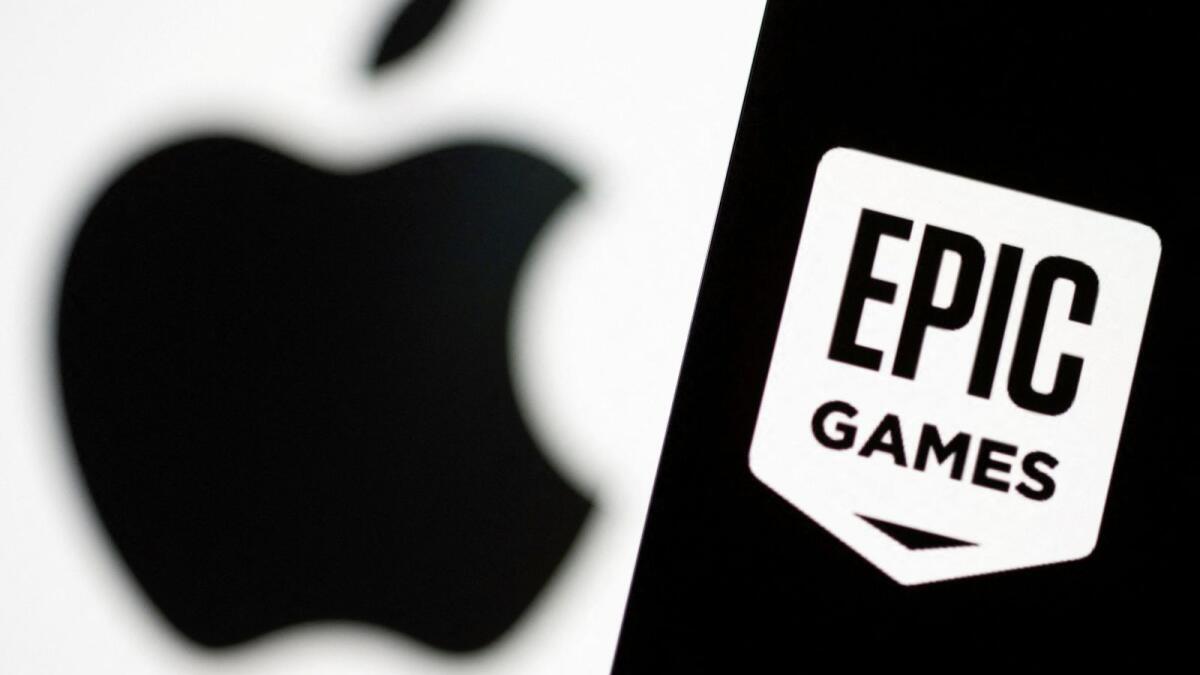Epic Games, the creator of “Fortnite,” has accused Apple of hindering its efforts to establish a games store on iPhones and iPads in Europe. The dispute stems from Apple’s rejection of documents submitted by Epic Games to launch the Epic Games Store, citing similarities in design with Apple’s own App Store buttons and labels. Epic Games defended its use of standard naming conventions for buttons, such as ‘Install’ and ‘In-app purchases,’ and accused Apple of arbitrary rejection, obstruction, and violation of the Digital Markets Act (DMA), prompting the gaming company to raise concerns with the European Commission.
Despite pressure from European regulators, Apple had previously allowed Epic Games to set up its game store on iOS devices in Europe in March. However, the recent rejection of Epic Games’ documents has reignited tensions between the two companies. Epic Games and Apple have been locked in a legal battle since 2020 when Epic Games alleged that Apple’s practice of imposing up to 30% commissions on in-app payments on iOS devices violated US antitrust rules. In response, Apple proposed changes to its App Store policies earlier this year to comply with certain directives of the DMA, aimed at facilitating user mobility between competing services.
The ongoing feud between Epic Games and Apple highlights the broader debate over app store control and competition within the digital marketplace. Apple’s strict regulations regarding app submissions and in-app purchases have faced scrutiny from developers and regulators worldwide, with Epic Games at the forefront of challenging these practices. The rejection of Epic Games’ documents for its game store launch in Europe further exacerbates the existing conflict between the two tech giants, with Epic Games accusing Apple of obstructing its business opportunities and violating market regulations.
Epic Games’ decision to involve the European Commission in the dispute signifies a shift towards regulatory intervention in addressing technology companies’ market dominance and control. By raising concerns about Apple’s actions, Epic Games is seeking regulatory support to ensure fair competition within the app store ecosystem. Apple’s response to the allegations and the European Commission’s stance on the matter remain to be seen, as both parties have yet to provide official comments on the latest developments in the Epic Games Store launch issue.
The implications of the Epic Games-Apple feud extend beyond their individual interests to impact the broader tech industry’s ecosystem and regulatory landscape. The clash between Epic Games and Apple underscores the growing tension between app developers and platform owners over control, revenue sharing, and market access. As the European Commission continues to monitor competition issues in the digital market, the outcome of this latest dispute may have far-reaching consequences for app store policies and regulations globally, setting a precedent for future conflicts in the industry.
In conclusion, the ongoing dispute between Epic Games and Apple over the launch of the Epic Games Store in Europe reflects the larger challenges facing app developers in navigating app store regulations and competition issues. The involvement of regulatory bodies like the European Commission signals a shift towards increased oversight and intervention in addressing market dominance and anti-competitive practices within the tech industry. As the feud escalates, the outcomes of this conflict will likely shape the future of app store policies and competition dynamics, influencing the way technology companies operate and interact within the digital marketplace.


























